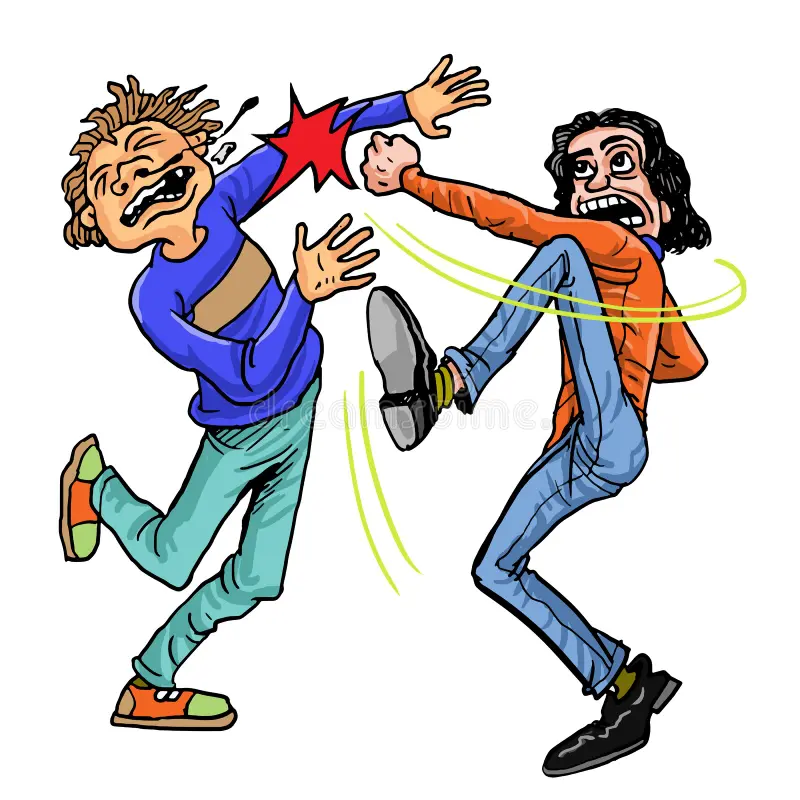For at least 200 years, classical liberals (aka libertarians) have warned that the more power the government wields, the greater the lengths people will go to get their hands on it before their ideological opponents do.
This is not rocket science, yet resistance to the implications endures. If politicians and bureaucrats can readily confiscate wealth from its producers and distribute it to others, or if they can grant privileges to those they favor and impose restrictions on those they don’t, you can bet that individuals and groups will work overtime for access to that power. That’s a recipe for civil strife; it leads to what Ayn Rand called an institutionalized civil war.
Imagine what our society would look like if there were no liberty-robbing political power to vie for. People would have to mind their own business and set up the communities they deem suitable. They could engage in persuasion, but they couldn’t tap the taxpayer to pay for coercive crusades against others. (I leave aside the heretofore unsolved problem of limiting government strictly to the protection of life and property, as well as the question of whether market-ordered individualist anarchism is the only promising approach.)
All attempts to turn the government into something other than a due-process-bound peacekeeper must incite conflict. The early classical liberals in France identified the state and its power to legally plunder—that is, to tax—as the source of “class conflict.” The state (the great fiction by which everyone seeks to live at the expense of everyone else—Bastiat) necessarily divides society into tax producers (the industrious, whether employer, employee, or independent) and tax consumers (who prefer the fruits of plunder to work). Most people do not fall neatly into one or the other category, so the term net applies. Classes—or better, castes—were not a natural outcome of society; they were political constructs, imposed by state force. In the free market, open-border classes will exist, but not castes.
The state does more than take money from A and give it to B. At A’s request (or not), the government may impose requirements or prohibitions on B. He usually objects. Such may be done for A’s financial gain, but it may also be done in the sincere belief that B and everyone else would be better off morally if they were forced to live this way or that. Sometimes the motives coexist. Examples have included forced abstention from various alleged sins, such as alcohol, drugs, and racial color blindness.
In a virtually unlimited democracy, one can immediately see the danger this poses to social peace. Any meddlesome group that manages to amass a majority of voters has the potential to impose values on the rest. It helps to have a leader with something like charisma. That potential will attract those who have a taste for lording it over others, but it will also attract those whose motive is only defensive: “If I don’t have the power, my opponents will.” Those are different motives, but the consequences are the same. Someone imposes; others are imposed on. A third motive might be retribution for past wrongs, real or imagined.
The high-stakes quest for power promotes the demonization of adversaries, increasing the social temperature and danger. Every election becomes the most important in our lifetime or even perhaps the last. The Other must be stopped because civilization depends on it. This is a time bomb whose source is the omnipotent state. Someone needs to write a book titled (without apologies to Christopher Hitchens) Government Is Not Great: How Politics Poisons Everything.
Classical liberalism seems to be the only approach that rejects this framework. Or to put it another way, any approach—whatever you call it—that rejects aggressive force qualifies as classical liberal. The only thing that gets “imposed” is the nonaggression obligation. Not to put too fine a point on it, in a fully liberal society, the law (in Hayek’s bottom-up sense) is similar to the rules of the road: it doesn’t tell you where to go, but only how to get where you want to go. Distinguishing between aggression and defense may occasionally be difficult, but that’s why we have courts, which would exist as well under market-ordered anarchism. Violence is costly, peaceful bargaining much less so. (See David Friedman’s The Machinery of Freedom, among others, for details.)
Another way to put this is that we should avoid utopianism. The utopian has a vision of the ideal society down to the smallest detail and harbors the temptation not only to impose his vision, but to punish those who see things differently. Utopianism rejects the liberal insight, as the late historian Ralph Raico said many times, that “society runs itself.” The welfare-enhancing market order is produced by individuals who peacefully pursue their chosen ends, freely trusting, coordinating, cooperating, and trading with others, often strangers. But for this to happen, the institutions and mores must be right, among them respect for persons, property, and contract. There are no guarantees, but those can be best protected by small government (if not market-based rights protection), small jurisdictions, and the freedom of exit.
Original pro-market liberalism is not so much a set of answers as a moral-legal-political framework in which individuals search for answers by relying on persuasion and consent, never aggressive force. Worthy causes are left to voluntary organizations, such as mutual-aid societies and charities. Social power replaces state power, to use individualist Albert Jay Nock‘s exhaustive alternatives.
Why would anyone who favors peace accept anything else?
(For more, see my “Disagreement without Conflict.”)

































